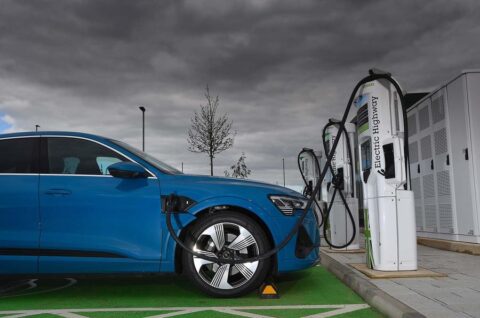
Chancellor Jeremy Hunt snubbed incentives towards electric cars in today’s Spring Budget, ignoring calls from car makers and industry bodies to help accelerate growth within the EV market.
During his hour-long statement, no benefits were brought in to either incentivise buying nor reduce the cost of ownership as the country gears up to go EV-only in just over a decade
This lack of EV incentives has been blasted by Vauxhall, a key player in the UK automotive manufacturing sector. Managing director James Taylor said the budget “has not delivered the acceleration needed to stop the UK’s transition to electric vehicles from stalling”.
These calls for buying incentives have become louder since the introduction of the ZEV mandate which legislates that car manufacturers must hit a EV sale target – 22% of total sales this year.
Carmakers argue that private buyers should get the same incentives as fleet buyers. Taylor said: “Whilst there are strong incentives for company car drivers to make the switch to electric – including for those choosing luxury vehicles – the private buyer who wants a more attainable small or family car receives nothing.
“If we are to meet the rightly ambitious targets laid out in the ZEV mandate then there needs to be incentives for private car buyers to make the switch to electric as there are in the majority of European nations.”
As well as buying incentives, industry heads – such as VW UK boss Alex Smith and the Society of Motor Manufacturers and Traders (SMMT) – have also demanded a cut in the VAT rate of public charging from 20% to match the 5% that home charging attracts. Opponents argue this is disproportionate and needs addressing.
Taylor said: “If you can charge your electric vehicle at home with off-street parking then you will pay 5% VAT on your electricity. If you don’t have a driveway and rely on public chargers then you will pay 20% VAT on your electricity. We support the FairCharge campaign for a fairer taxation on charging.
“We would call on the Chancellor to urgently set up purchase incentives to stimulate the electric vehicle market and review the unfair taxation on public charging so that the UK isn’t left behind in the race to more sustainable motoring.”
The budget was also expected to bring an answer on the potential extension to the vehicle tax exemption by EVs, which will end in 2025. However, nothing was announced.
The minister did, however, confirm fuel duty will be kept at 5p for another year.
Chancellor Jeremy Hunt said the duty cut, initially brought-in in 2022 when fuel prices hit record highs, would “save the average driver £50 over the next year and bring total savings since the 5p cut was introduced to £250”.
